Wave of terror attacks in three continents
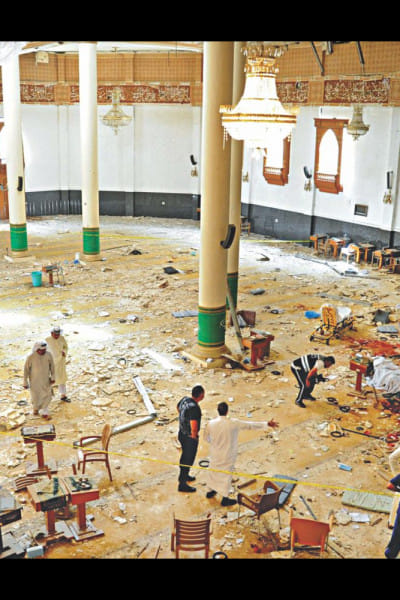
Terrorists attacked sites in France, Tunisia and Kuwait yesterday, leaving a bloody toll on three continents and prompting new concerns about the spreading influence of jihadists.
In France, a suspected Islamist pinned the severed head of his boss to the gates of a US-owned gas factory in France yesterday in what President Francois Hollande called a "terrorist" attack.
The alleged assailant, identified as 35-year-old married father-of-three Yassin Salhi, also smashed his vehicle into the Air Products factory, causing an explosion.
In Tunisia, at least one gunman disguised as a vacationer opened fire at a beach resort, killing at least 37 people before security forces shot him to death, officials said.
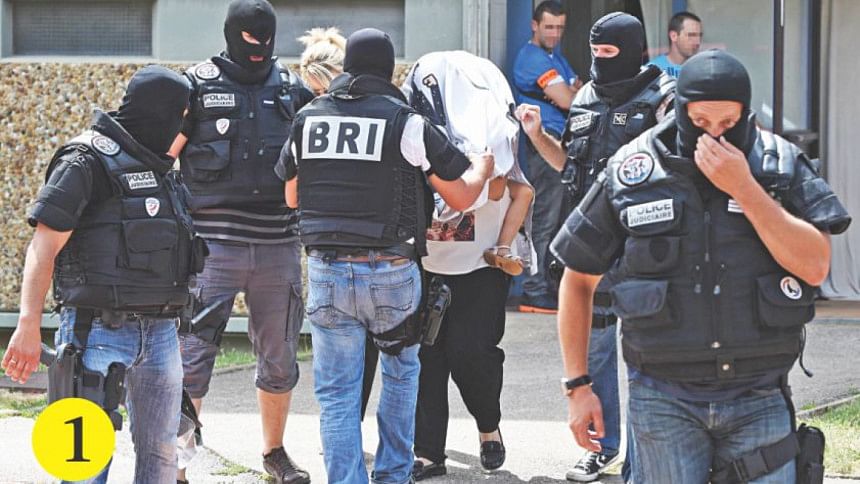
There was no immediate claim of responsibility for the Tunisia attack,
Witnesses described scenes of panic after the shooting at the five-star Riu Imperial Marhaba Hotel on the outskirts of Sousse, about 140 kilometres (87 miles) south of Tunis.
"There are 37 dead and 36 wounded.
Some of the wounded are in a critical condition," health ministry communications chief Chokri Nafti said, revising an earlier toll of 28 dead.
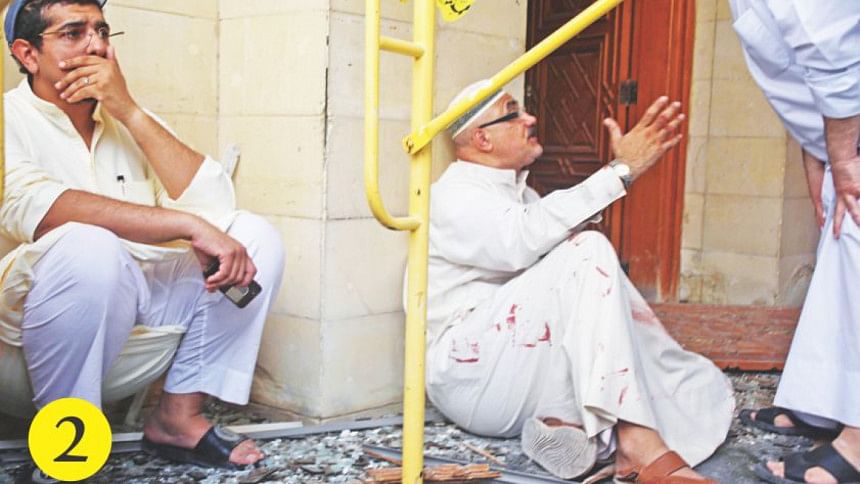
The Islamic State group, which on Monday marks the first anniversary of its "caliphate" straddling Iraq and Syria, said it was behind the Kuwait bombing.
During Friday prayers, a suicide bomber struck Shia mosque Al-Imam al-Sadeq in the Kuwaiti capital, as the Gulf state declared an "all-out confrontation" with terrorism, reports AFP.
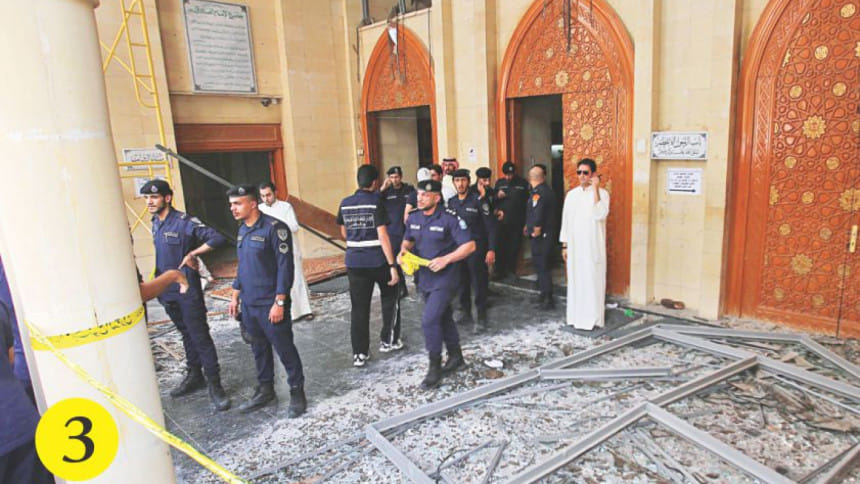
The bomb filled the mosque with smoke and left dead and wounded scattered on the carpet, according to witnesses and videos posted online.
Health Minister Ali al-Obaidi told the state-run Kuwait Television the number of dead had risen to 27 in addition to 222 wounded in the first ever suicide attack on Shiite mosques in the oil-rich emirate.
The toll in the attack, carried out in the Muslim holy fasting month of Ramadan, is one of the largest in Kuwait's history.
The cabinet announced after an emergency meeting that all security agencies and police have been placed on alert to confront what it called "black terror".
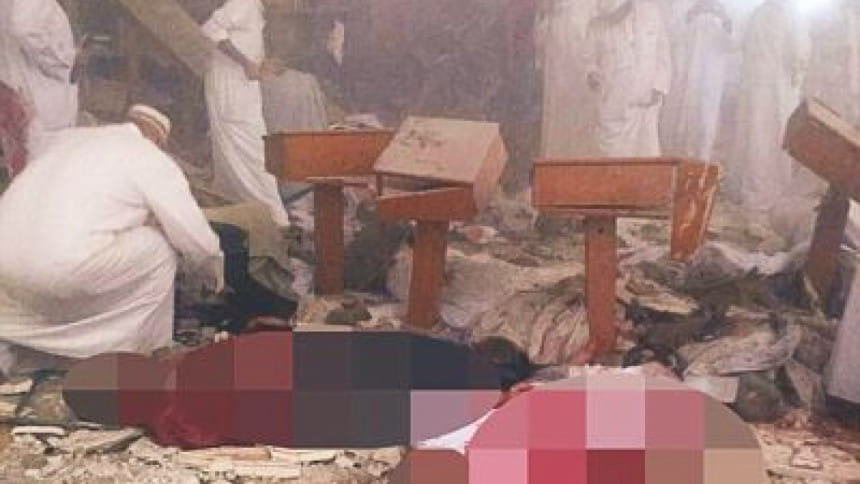
"The cabinet stresses that it will take whatever measures necessary to root out this scourge, and declares a relentless all-out confrontation with these terrorists," said a statement after the meeting.
It also declared a day of mourning today.
The IS-affiliated group in Saudi Arabia, calling itself Najd Province, said militant Abu Suleiman al-Muwahhid bombed the mosque which it claimed was spreading Shiite teachings among Sunni Muslims.
IS, a radical Sunni group, considers Shias to be heretics.
The Najd Province group has claimed similar bombings at Shiite mosques in Saudi Arabia in recent weeks.
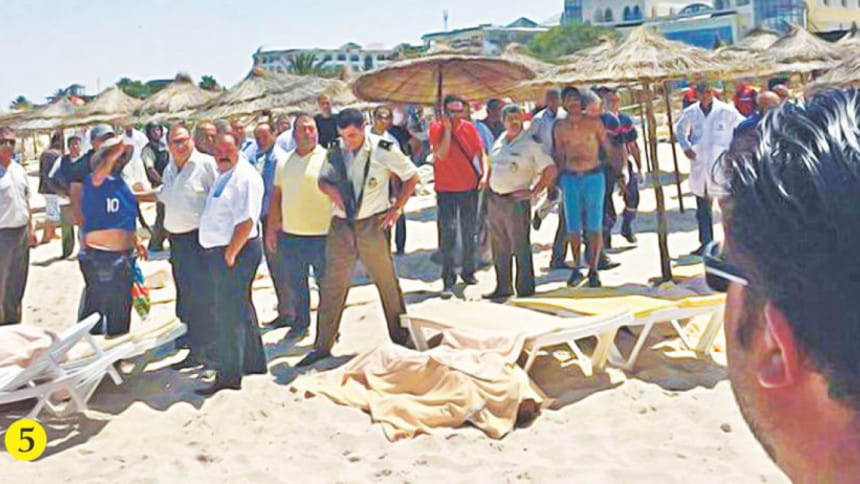
After the attack, a security official said "it is a suicide bombing", and witnesses said a suicide bomber entered the mosque during weekly noon prayers.
In a message circulating on social media, the Islamic State called the suicide bomber "one of the knights of the Sunni people."
The three strikes came at roughly the same time, and just days after the Islamic State, the militant group also known as ISIS or ISIL, called for such operations during the Muslim holy month of Ramadan.
"It appears to be an effort to launch and inspire a wave of attacks across three continents, reminiscent of al-Qaeda's simultaneous multiple attacks of the past," said Bruce O Riedel, a former CIA officer who is a counterterrorism expert at the Brookings Institution in Washington.
While investigations continued in each of the countries, the quick succession of the attacks raised the possibility that the Islamic State, which has seized control of territory in Iraq and Syria, has successfully inspired sympathizers to plan and carry out attacks in their own countries.
"Muslims, embark and hasten toward jihad," said the Islamic State's spokesman, Abu Mohammed al-Adnani, in an audio message released this week. "O mujahedeen everywhere, rush and go to make Ramadan a month of disasters for the infidels."
US intelligence and counterterrorism officials were scrambling on Friday to assess the connections, if any, between the attacks in France, Kuwait and Tunisia, writes New York Times.
Col Steve Warren, a Pentagon spokesman, called the attacks "heinous" but would not speculate on possible linkages between them.
"It's too soon to know whether these attacks were all coordinated or whether they were all just completely separate," Colonel Warren said. "We just don't know yet."
The grisly attack near France's second city of Lyon "was without doubt to cause an explosion. It was a terrorist attack," said Hollande in Brussels, cutting short an EU summit to chair emergency meetings in Paris.
The victim was found with Arabic inscriptions scrawled on him and Islamic flags were also found on the site at the small town of Saint-Quentin-Fallavier, some 40km from Lyon.
The head of the victim, a 54-year-old local businessman, was "hung onto the fence surrounded by two Islamic flags bearing the Shahada, the profession of (Muslim) faith," said French prosecutor Francois Molins.
The attack was the first instance in France of a beheading during an attack -- which has become a trademark of the Islamic State group in Iraq and Syria.
The gruesome killing came nearly six months after the Islamist attacks in and around Paris that left 17 people dead, starting with a shooting at satirical magazine Charlie Hebdo.

 For all latest news, follow The Daily Star's Google News channel.
For all latest news, follow The Daily Star's Google News channel. 



Comments